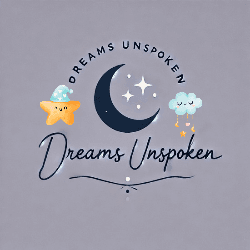Chronic Sleep Deprivation: Finding Light in the Shadows
Ever feel like you’re running on fumes—emotionally, physically, spiritually—while everyone else is asleep and fine? Chronic sleep deprivation isn’t just about being tired. It’s about losing parts of yourself in the silence between 2 a.m. and sunrise. This isn’t a sleep hygiene post. It’s a quiet scream into the night.
It doesn’t begin with a crash. Chronic sleep deprivation slips in quietly—one restless night, then another. You brush it off. There’s work to finish, bills to think about, thoughts you can’t quiet. But slowly, your body keeps the score. You start forgetting things. Snapping more. The fog in your head thickens, and mornings feel like wading through mud.
These are the symptoms of chronic sleep deprivation—irritability, brain fog, low immunity, and that strange sense of emotional detachment, like life is happening a few feet away from you.
Table of Contents
I know, because I’ve lived it. And maybe you have, too.
But here’s what changed everything: realizing it wasn’t just about getting more hours—it was about making sleep sacred again. You don’t have to keep surviving on fumes. You can repair, restore, and rediscover the quiet joy of waking up rested.

If your mind refuses to quiet down the moment your head hits the pillow, you’re not alone. Racing thoughts at night are one of the most overlooked symptoms of chronic sleep deprivation—and one of the most tormenting.
It’s easy to blame the mind for everything—the racing thoughts, the midnight awakenings, the way exhaustion folds into every muscle. But part of chronic sleep deprivation lives in the body. I didn’t realize how much tension I was carrying until I replaced my pillow. Not for fluff or luxury, but for alignment. The difference a properly designed ergonomic pillow made wasn’t dramatic, but it was consistent. Less tossing. Less waking with a clenched jaw. I’ve been using this one lately, and it’s helped—not in a miracle way, but in a my-body-finally-unfurls kind of way.
The Hidden Cost of Chronic Sleep Deprivation
Sleep isn’t a luxury. It’s a lifeline. A sacred reset your body and mind crave every night. Without it, things don’t just feel off—they begin to unravel.
Chronic sleep deprivation doesn’t knock on the door politely. It seeps in. One restless night, then another. Until exhaustion becomes part of your identity. You wake up tired, push through the day in a fog, and wonder why nothing feels quite right anymore.
But the damage runs deeper than grogginess.
The psychological effects of chronic sleep deprivation distort your emotional lens. You become more reactive, less resilient. That sharp comment hits harder. That small problem feels enormous. You cry more. Laugh less. Anxiety becomes louder. Confidence slips through the cracks. Even joy feels out of reach.
Then there’s your body—quietly fighting a losing battle. Your heart strains to keep pace. Your immune system weakens, leaving you vulnerable to every passing bug. Your skin loses its glow. Your hunger signals misfire. And your brain? It slows. Forgetfulness, lack of focus, mental fatigue—it all adds up.
The effects of long term chronic sleep deprivation don’t just show up in your lab results. They show up in your relationships. Your creativity. Your mood. Your sense of self.
But here’s what they don’t tell you: it’s reversible.
It starts small. A conscious decision to prioritize rest. To step out of the chaos and choose stillness. To build gentle routines. To listen to your body before it starts screaming.
You deserve more than survival mode. You deserve mornings that don’t feel like recovery. You deserve clarity. Calm. Restoration. And it begins with sleep.
The Myths That Keep You Sleepless
We’ve all heard the lies—soft-spoken myths we whisper to ourselves when the nights stretch too long and the fatigue feels permanent.
“I’ll just catch up on the weekend.”
But sleep doesn’t keep a ledger. You can’t repay lost hours like a debt. The body remembers every deficit, and it takes more than one nap to repair what’s slowly been breaking.
“I function fine on five hours.”
Maybe for a while. But beneath the surface, the symptoms of chronic sleep deprivation start to fester. Your memory dulls. Your mood shifts. Your nervous system stays in fight-or-flight, even when the danger is gone.
“Sleep aids are the only solution.”
Quick fixes mask the root. Pills may quiet the mind temporarily, but they don’t teach the body how to truly rest. And over time, they can deepen the cycle you’re desperate to escape.
These myths are comforting. But dangerous.
They keep you trapped in survival mode, convincing you that this tired version of yourself is the only one you get.
But that’s a lie too.
There is a way back.
And it begins with truth, compassion, and learning to give your body what it’s been quietly begging for: real, restorative sleep.
Sleep Deprivation Treatment
Chronic sleep deprivation is the dragon no one sees—but you feel it breathing down your neck.
Every morning feels heavier. Every night, harder to face.
But here’s the truth: you are not powerless. You are the hero, and the path back to yourself is still open.
You already have the tools. Now it’s time to use them.
Step 1: Reclaim Your Evenings
The battle for better sleep doesn’t begin in the dark—it begins in the light.
Create an evening that feels like an exhale.
Start small. Dim the lights an hour before bed. Put your phone to sleep before you try to. Light a candle that reminds you of peace. Turn your routine into a ritual.
Make your bedroom a sanctuary.
No glowing screens. No piles of laundry whispering unfinished tasks. Just softness, quiet, and calm. A space that welcomes you home to yourself.
When you set the stage for rest, your body begins to listen. It stops bracing. It starts healing.
Step 2: Calm the Storm in Your Mind
One of the cruelest symptoms of chronic sleep deprivation is the racing mind that won’t let you go. The endless loop of thoughts that grows louder the moment your head hits the pillow.
You don’t need to silence the noise—you need to give it somewhere else to live.
Write it down. All of it.
Keep a journal beside your bed and let your mind speak its chaos. The page can carry what your body no longer needs to hold.
Try this:
Close your eyes. Picture a place that feels safe. Maybe it’s a beach, maybe it’s a memory.
Breathe in slowly.
Feel your heartbeat. Let it soften.
With every breath, imagine the weight falling off your chest.
Let go of everything that doesn’t belong in this moment.
Step 3: Reset Your Days
Better sleep doesn’t begin at night—it begins with how you greet the morning.
Wake up at the same time, even when it’s hard. Especially when it’s hard.
This is how you teach your body to trust you again.
Move your body—not as punishment, but as release.
Stretch. Walk. Dance in your kitchen. Do something that reminds your nervous system that it is safe now. That you are safe now.
Nourish yourself—not just with food, but with slowness, with boundaries, with moments of quiet throughout the day.
The cycle of chronic sleep deprivation doesn’t end with a pill. It ends with a decision—
To honor your body.
To listen when it whispers.
To fight for your peace, one evening, one breath, one small act at a time.

Chronic Sleep Deprivation: Try Our Out-of-the-box Tips
Sometimes, the usual advice just doesn’t cut it. You’ve tried the bedtime tea, the screen curfew, the meditation apps. But chronic sleep deprivation keeps dragging its feet across your nights.
So when the basics fail, it’s time to soften into something more intuitive—something that speaks to your senses, your habits, your body’s unique rhythm.
- Weighted Blankets: A Hug for the Nervous System
There’s something powerful about pressure—the kind that comforts, not constricts.
Weighted blankets are designed to mimic the feeling of being gently held. This deep touch pressure signals your body to relax, lowering cortisol and easing you into calm.
Personally? This has been a game-changer. Especially in a cool room.
I’ve learned to let the air kiss my skin, sleeping lightly dressed, letting myself float half-covered in softness.
Just before sleep takes me, I pull the blanket up—and my nervous system knows it’s safe to let go.
This isn’t just a tip. It’s a ritual. And over time, it becomes a deeply personal signal to your body: It’s okay to rest now.
If you’ve never tried a weighted blanket, this is your sign. This luxurious jacquard weighted blanket wraps around your body like a soft promise. The deep pressure helps quiet your nervous system and melt chronic sleep deprivation into something manageable. It’s not just a blanket. It’s a signal to your entire being: you’re safe now.
- Sound Therapy: Let Frequencies Do the Work
Sometimes your thoughts are too loud to reason with. That’s when sound therapy steps in.
I’ve found that binaural beats—especially at 963 Hz—act like a balm for the spinning mind.
Forget the racing thoughts. Don’t chase them. Don’t argue.
Just hit play and let the frequency carry you somewhere quieter.
It’s not magic—but it feels like it.
And if you want to know how deeply sound heals, I shared more about that here in my breakdown of music as a remedy for anxiety. It’s worth exploring.
- Sleep Stories: Soothe the Mind with Soft Narratives
There’s something deeply comforting about being told a story—especially when it’s gentle, slow, and full of soft pauses.
Apps like Calm or Insight Timer offer narrated sleep stories to help distract your brain from its usual loops.
But even YouTube is full of free playlists if you know what to look for. Try one tonight. Let your inner child settle into a story where nothing bad happens. Where everything ends in peace.
Sleep stories are not childish—they’re medicine for the overthinking mind.
- Scent Rituals: Let Aromas Signal Rest
Our sense of smell is powerful. It speaks to the brain before logic even wakes up.
Use that to your advantage.
I’ve tried lavender, cedarwood, and chamomile. But my personal favorites? Cinnamon and rosemary.
There’s something grounding and intimate about them. They remind me of safety, of memory, of warmth.
Try using an essential oil diffuser before bed. Or spritz a little pillow mist. Rub a drop into your wrists and take three slow breaths.
This isn’t about products—it’s about ritual. A scent that becomes synonymous with rest, a quiet signal that it’s time to stop striving.
Some nights, what helps isn’t a solution—it’s an atmosphere. Chronic sleep deprivation isn’t always about routines or supplements. Sometimes, it’s the room itself. I’ve found peace in small rituals—dim lighting, quiet sounds, and yes, scent. This cordless Bluetooth aromatherapy diffuser softly fills the space with essential oils and stillness. No water, no wires—just calm. It doesn’t solve everything, but it helps me stop bracing for another restless night.
These aren’t gimmicks.
They’re anchors.
And in the storm of chronic sleep deprivation, sometimes you just need a few steady things to hold on to.

Chronic sleep deprivation can be worsened by recurring dreams that keep you restless and anxious. Learn how to stop recurring dreams and take back your nights.
Sleep Debt Sent Where It Belongs – The Dust Bin
Every hero doubts their path. Especially when exhaustion runs deep. Maybe you’ve tried before—sleep teas, dark curtains, calming apps—and still tossed and turned. Maybe the signs of sleep deprivation have crept in so slowly, you didn’t realize you were unraveling. The brain fog. The forgetfulness. The aching sense that you’re running on empty, even after eight hours in bed. You wonder if it’s too late to change.
But it’s not.
You don’t need perfection. You need patience. Tonight is not a test—it’s an offering. A quiet chance to listen to what your body has been begging for. The signs of chronic sleep deprivation are not failures; they’re signals. And when you pay attention to them, you begin to heal. One small ritual at a time.
Reclaim Your Sleep
Chronic sleep deprivation can feel like a quiet war—a slow, steady unraveling that no one sees but you. But every battle has a turning point, and yours begins the moment you become aware of the causes of sleep deprivation. This is your moment.
It doesn’t have to be dramatic. Start with one thing. Dim the lights a little earlier. Jot down the thoughts circling your mind like restless ghosts. Choose one small, gentle action that feels doable tonight.
Because even if the nights have been long and unkind, there’s something unbreakable in you. You are not powerless here. You are stronger than the silence, stronger than the sleeplessness, stronger than the weight you’ve been carrying.
You just need to begin.
If you found this article useful, maybe you will be interested in our piece of information about why anxiety gets worse at night.







